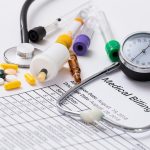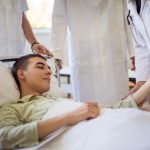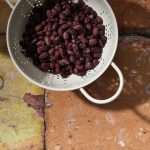Reducing blood pressure may lower dementia risk in these older people
A groundbreaking study has revealed that an intensive four-year intervention to lower blood pressure significantly reduces the risk of developing dementia in adults with...
New cholesterol-lowering treatment is more flexible and effective
A groundbreaking cholesterol-lowering treatment, known as recaticimab, has shown promise in a recent study presented at the American Heart Association's Scientific Sessions 2023.
This innovative...
Special beta cells in pancreas could revolutionize diabetes treatment
Researchers from Weill Cornell Medicine have made a groundbreaking discovery that could reshape how we approach diabetes treatment.
They've revealed that not all beta cells...
This Mediterranean diet with dairy boosts heart health, study finds
Researchers from the South Australian Health and Medical Research Institute (SAHMRI), the University of South Australia (UniSA), and Flinders University have unveiled a modified...
Inflammation in the brain may play crucial role in early Parkinson’s disease
Researchers from the University of Alabama at Birmingham have made a significant discovery regarding Parkinson's disease. They found that inflammation in the brain is...
Lying down during blood pressure testing may predict heart attacks better
Traditionally, blood pressure checks involve individuals sitting down, with a doctor using an arm cuff to measure their blood pressure.
However, recent research suggests that...
Resistant starch can help manage non-alcoholic fatty liver disease (NAFLD)
Non-Alcoholic Fatty Liver Disease (NAFLD) is a prevalent liver condition affecting approximately 30% of the global population.
Left unmanaged, NAFLD can progress to severe liver...
How to treat and deal with ADHD
Attention-deficit/hyperactivity disorder, also known as ADHD, is a condition that often begins between ages 3 and 6, according to the National Institute of Mental Health.
And...
Inflammatory bowel disease is linked to higher mental health risks
Inflammatory Bowel Disease (IBD), which includes conditions like Crohn's disease and ulcerative colitis, is widely recognized for its impact on physical health.
But a recent...
Reducing poverty could help lower dementia risk in older people, study finds
A new study suggests that reducing poverty and improving social policies may help lower the chances of developing dementia.
This is particularly relevant for aging...










